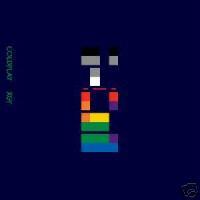Free Speech Post 9/11

Congress shall make no law respecting an establishment of religion, or prohibiting the free exercise thereof; or abridging the freedom of speech, or of the press; or the right of the people peaceably to assemble, and to petition the government for a redress of grievances –Amendment I to the United States Constitution
I disapprove of what you say, but I will defend to the death your right to say it
-Voltaire
Does the protection of the First Amendment protect all words? The obvious answer is no. For instance, one who yells fire in crowded room where there is no fire can be held criminally liable for public endangerment. The First Amendment and the subsequent free speech it accords appears a seemingly simple doctrine, however it is more philosophical than one might initially expect.
Of course the philosophical basis of any fundamental right lies in an argument, often officially illustrated in the United States through our legal system. There have been many court battles concerning various First Amendment queries, usually involving legal discussions of obscenity (which is not protected under the guidelines of the First Amendment) and other speech acts, e.g., hate speech, sex speech, etc. Unfortunately, the virtue of tolerance is most usually codified in the abstract; therefore outside of the courts when deciphering free speech from other speech acts, difficulties and confusion can and do occur.
Although spotlighted recently, internal security has always been a stipulation of the First Amendment principals. Internal security comprises the various efforts and means by a nation or government to combat subversive acts that could destroy the exiting state. Subversive acts include, but are not limited to, espionage, sedition, sabotage, terrorism and treason. The idea is that the aforementioned subversive acts are less likely to involve First Amendment considerations because they are more than likely to involve actions and not expressions (Willis 2005). Although the United States Patriot Act makes no official provisions to the First Amendment, I believe that we are currently moving in a direction that compromises our First Amendment rights. This is exemplified in two recent, albeit significant free speech judgments, one of which was determined in a court of law.
On July 13, 2005 an influential Muslim scholar Ali al-Timimi whom U.S. prosecutors called a “purveyor of hate and war” was handed a life sentence for allegedly inciting his followers in Virginia to wage war against the U.S. following the 9/11 terrorist attacks. While the federal district judge hearing the case, Leonie M. Brinkema, said there was significant evidence that Mr. Timimi incited his followers toward violence, she noted that she considered the sentence “very draconian” but was bound by “federal guidelines.” The language used by Mr. Timimi, although considered offensive by many, the defense contends was free speech, protected by the First Amendment. Mr. Timimi continues to maintain his innocence (Lichtblau 2005).
On July 7, 2005, the rapper who goes by the name of the “Arabic Assassin” whose real name is Bassam Khalaf, was fired from the George Bush Intercontinental Airport in Houston. Mr. Khalaf’s unreleased CD “Terror Alert” contains descriptions of himself as a “crazy, suicidal Arab…equipped with bombs” and rhymes about flying planes into buildings. The Transportation Security Administration conducts criminal background checks but does not investigate what people do in their spare time a spokesperson said. However, once the web sites with the raps were brought to the attention of the agency Mr. Khalaf was terminated. Mr. Khalaf contends that he is not a terrorist but that his rhymes were simply exaggerations intended to attract publicity (Van Gelder 2005).
A principal of free speech of course concerns some, but not an entire, range of protection for speech. The subject nevertheless is complex given the uneven application of various reasons for free speech to different sorts of communications as the two aforementioned cases exhibit. Will certain speech acts now be provisioned separately since we have waged a war against terror? Although a few cases is by no means an indicator of provisions against free speech, it appears as though we are heading in that direction.
Works Cited
Lichtblau, Eric. 2005. “Scholar Is Given Life Sentence in ‘Virginia Jihad.’ New York
Times, July 14.
Willis, Clyde E. 2002. Student’s Guide to Landmark Congressional Laws. Westport, CT:
Greenwood Press.
Van Gelder, Lawrence. 2005. “Rapper Loses Airport Job” New York Times, July 16






